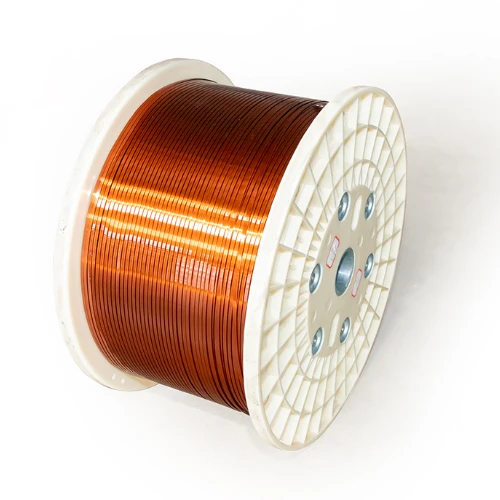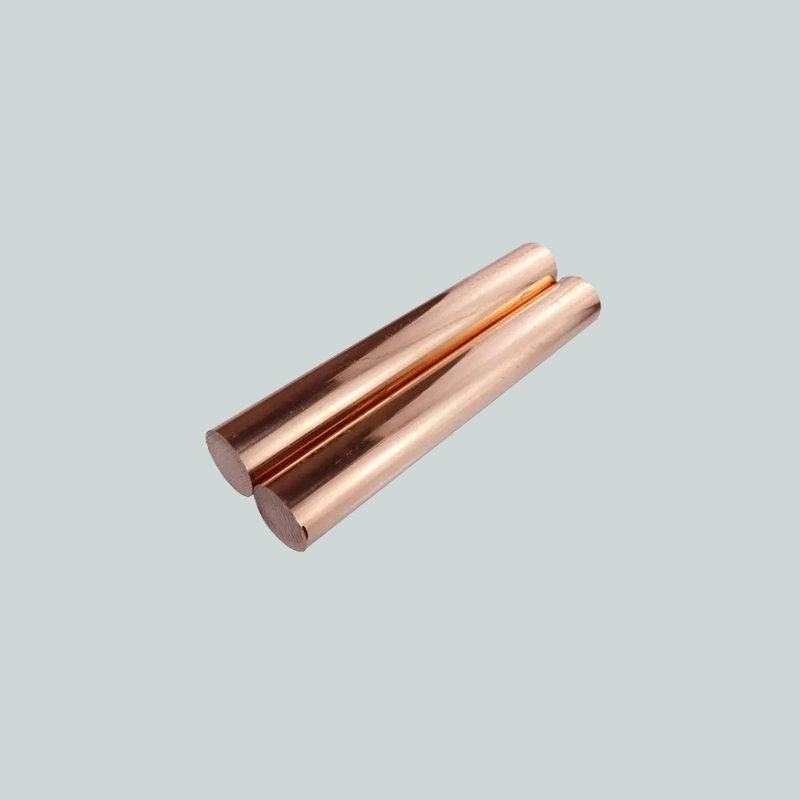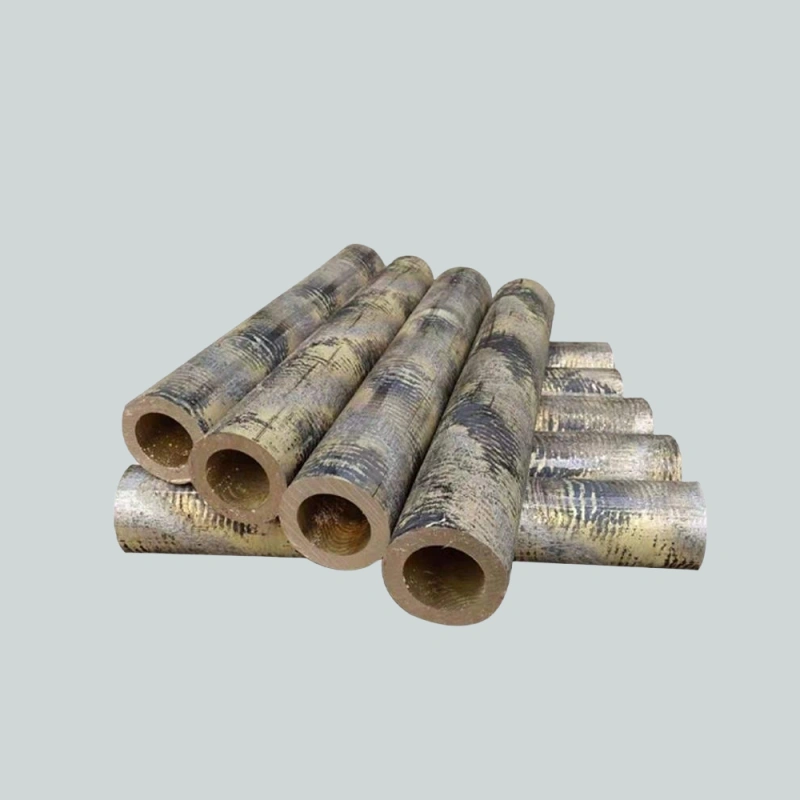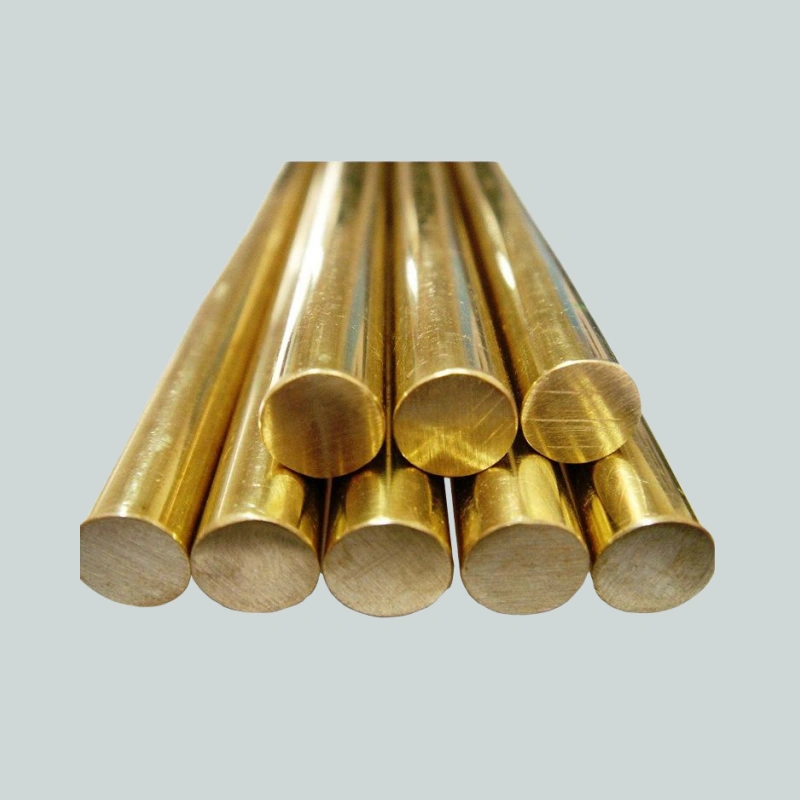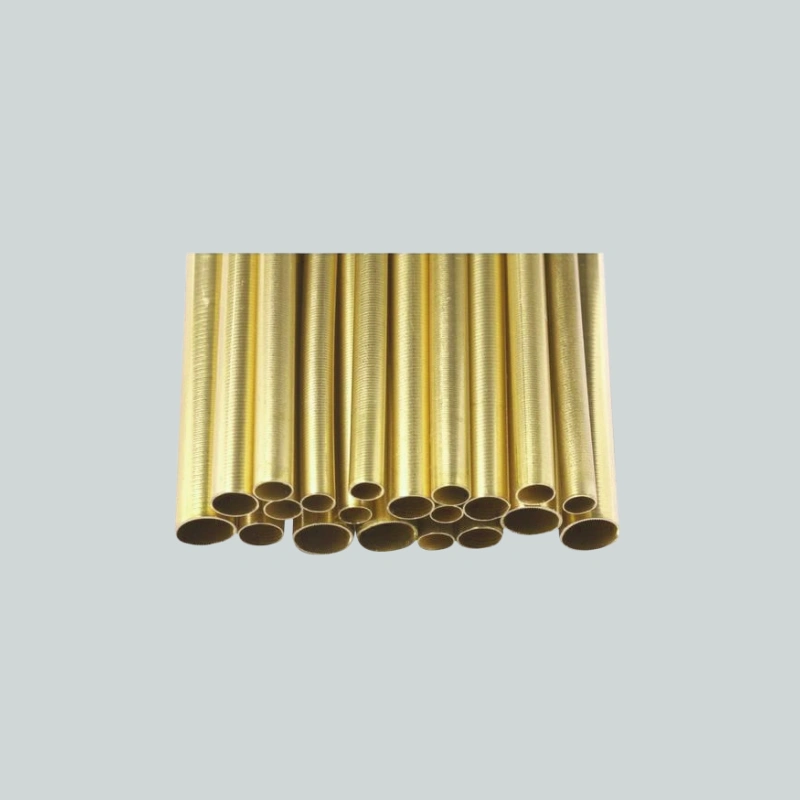Product Parameters
Conductor Material: 99.95% pure copper (ETP grade) or 99.7% aluminum (1060/1350 series)
Dimensions:
Width: 0.8mm – 12.0mm
Thickness: 0.15mm – 4.0mm
Insulation Thickness: 0.02mm – 0.15mm (standard); 0.03mm – 0.2mm (self-adhesive)
Insulation Class: Class 155 (F) for standard polyacetal; Class 180 (H) for heat-resistant formulations
Adhesive Activation: 120°C – 180°C (self-adhesive variant, pressure-assisted)
Tensile Strength: Copper core ≥ 210 MPa; Aluminum core ≥ 95 MPa
Breakdown Voltage: ≥ 2kV (standard); ≥ 3kV (double-layer insulation)
Standards Compliance: IEC 60317-28. NEMA MW 1000. GB/T 6109.12
Product Advantages
Enhanced Chemical Resistance: Polyacetal insulation resists oils, greases, and weak acids, outperforming traditional enamel in industrial environments.
Form Stability: Self-adhesive coating bonds windings permanently when heated, maintaining shape under vibration—critical for automotive and aerospace applications.
Space Efficiency: Rectangular profile reduces winding volume by 25-35% compared to round wire, enabling smaller, more powerful devices.
Cost-Effective Bonding: Self-adhesive variants cut assembly time by 40% by eliminating glue or tape, lowering labor costs.
Material Flexibility: Aluminum options offer 30% weight savings over copper, while copper provides superior conductivity (97% IACS vs. 62% for aluminum).
Product Features
Consistent Insulation: Precision extrusion ensures uniform polyacetal coating (±0.003mm) for reliable dielectric performance.
Adhesive Uniformity: Self-adhesive layer (when specified) covers 100% of the wire surface, preventing weak bonding points.
Low Friction: Smooth insulation reduces winding friction, minimizing damage during automated coiling processes.
Temperature Tolerance: Withstands short-term overloads up to 200°C without insulation degradation.
Moisture Resistance: Polyacetal’s low water absorption (<0.2% in 24hrs) prevents insulation swelling in humid environments.
Product Process
Conductor Forming: Copper/aluminum rods are rolled into rectangular strips, annealed to achieve target ductility.
Surface Preparation: Ultrasonic cleaning removes oxides and contaminants, ensuring strong insulation adhesion.
Base Insulation Coating: Polyacetal resin is extruded or dipped onto the conductor, cured at 200-250°C to form a hard, smooth layer.
Adhesive Application (If Specified): A thin layer of heat-activated polymer is applied over the base insulation, dried at 100-120°C.
Precision Sizing: Cold drawing or rolling calibrates dimensions to tight tolerances (±0.01mm for width/thickness).
Quality Validation: Each batch undergoes adhesion testing, breakdown voltage checks, and adhesive activation trials.
Main Application Fields
Automotive Electronics: Starter motors, alternators, and EPS (electric power steering) coils—self-adhesive variants resist vibration-induced loosening.
Household Appliances: Compressor windings in refrigerators and air conditioners, where chemical resistance to refrigerants is key.
Industrial Motors: High-torque servo motors and drives, leveraging space efficiency for compact designs.
Transformers: Low-profile planar transformers in power supplies, using rectangular shape for efficient heat dissipation.
Aerospace Components: Lightweight aluminum versions in avionics cooling fans and actuator motors.
Renewable Energy Systems: Coils in small wind turbine generators and solar inverter inductors.
Let's Talk About Your Project!
Please Feel free to give your inquiry in the form below. We will reply you in 24
hours.

